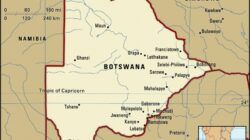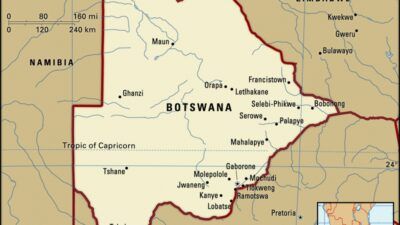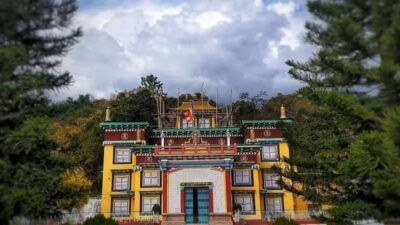Kerala Tourism Industry – The three -day virtual conference scheduled between February 1st and 3rd will discuss a course map on the future industrial development of Kerala in various areas such as agriculture, fishing, tourism, information technology, e -government, higher education, funding and funding
The International Conference – Kerala is looking forward, which is happening in the auspices of the Kerala Planning Council, will discuss the opportunities in the tourism sector to a large extent on the second day of the conference. The discussion on the tourism sector is scheduled between 2pm and 4pm on February 2.
Kerala Tourism Industry

According to information, the Tourism Summit will discuss “changing trends in international tourism” and ways to get the flag of Kerala’s tourism in front of the changing times. The table will have experts from the political side in the business and experts from the responsible and sustainable tourist side.
Top 10 Places To Visit In South Kerala: Explore The Untouched Beauty
Dr. Harold Goodwin, founder Director of the International Center for Excess Tourism, United Kingdom. Christina Beckmann, Vice -President – Global Strategy for the Adventure Commercial Association (ATTA). Suman Billa, Director – Technical Cooperation and Silk Development, Unwto; Professor Nimit Ranjan Chowdry, head of the Department of Tourism and Hospitality, Jamia Millia Islamia. Dipak Deva, Managing Director, TCI will face the Tourism Congress. From the state, Kadakampally Surendran, the Minister of Tourism and Dr. V Venu, a member, Board Planning Board of Kerala.
Kerala is looking forward is an international conference and consultation that will serve as a platform for the Kerala government to learn from experiences and best practices around the world in its efforts to modernize the economy and bring the benefits of high growth and growth.
The three -day virtual conference will see the top lights in the Indian industry such as Ratan Tata, Anand Mahindra, Kris Gopalakrishnan, Kiran Mazumdar Shaw, Azad Moopan, Ma Yusuf Ali, among others, aimed at a special industry meeting.
Participate in the community of professionals in the 2m+industry. Sign up to the newsletter to get the latest knowledge and analysis to your inbox. The Minister of Tourism, PA Mohamed Riyas said the Ernakulam area attracted the highest number
Pdf) Assessment Of Kerala Tourism Industry-an Economic Perspective
The tourism sector in Kerala has seen significant growth in the first half of the year, as it has attracted about 38 domestic tourists during this period, Tourism Minister PA Mohamed Riyas said. The minister said the state has seen a number of records of domestic tourists reaching the first half of 2022, which led to a 72.48 %increase in tourism growth.
Rya said the Ernakulam area attracted the highest number of tourists, with areas Malappuram, Wayanad, IDukki, Pathanamthitta and Kasaragod, which also show records of domestic travelers.
The minister spoke at the inauguration of the Kayaking Kayaking Center, which was created here through the DTPC Regional Council (DTPC), he said.

He also said that while speaking at the event, the minister said that people should be included in the initiatives of the Tourism Department, and therefore local tourism projects are taken into account.
Kerala To Set Up ‘industry Connect’ Platform For Stakeholders To Tap Tourism Trends: Minister
The Kayak Center is the first of its kind to be built by the state government in the area at a cost of Rs 1.79 Crore and includes 30 kayak units such as pedal boats, water taxis and inflatable rafts, the release said.
Kayak Park is placed in water with a floating corridor, kayak shop, kitchen, cafeteria and inflatable boats, he said.
In the near future, the tourist center will be upgraded to a kayak academy and the goal was to prepare a water tourism network that includes areas of Pullupikadav, Munderikadav and Parassinikadavu in the area, the liberation said. Pti hmp ss ss
Participate in the community of professionals in the 2m+industry. Sign up for the newsletter to get the latest ideas and analysis in the Inbox.an organization that promotes the Made in India label in international markets and creates awareness of Indian products and services.
Kerala’s Wellness Tourism Industry Prepares For Weather Challenges Amidst Delayed Promotional Efforts
Kerala is known for its picturesque waters, lush landscapes and diverse cultural heritage. Kerala’s tourism contributed significantly to the state economy, attracting millions of visitors each year. However, the state also has a powerful agricultural institution, with Georgia in Kerala supporting a large part of its population. The challenge results from the balancing of tourism and agriculture without ending the viability of each sector.
Tourism in Kerala has led economic growth, but has also affected traditional agriculture. The growing demand for land for hotel development, resorts and other infrastructure has led to shrinking agricultural areas. Farmers face difficulties in maintaining their territories due to increasing real estate prices. Many agricultural land is converted to tourism -related activities, reducing food production and affecting Kerala’s economy. In addition, the shift from agriculture to hospitality employment leads to a reduction in the transfer of agricultural knowledge between generations.
The rise of industries in Kerala, especially in Kerala tourism, has changed the standards of use of the land. The agricultural soils are redefined for commercial activities, leading to a reduction in crop production. Extension of urban and infrastructure development have also reduced water availability for irrigation. This displacement of land use affects both employment in agriculture and food security in the state. In addition, competition between real estate and agriculture makes it difficult for farmers to maintain their living.
Tourism in Kerala requires a large amount of water for hosting, leisure and maintenance of tourism sites. This excessive consumption affects irrigation, making it more difficult for farmers to cultivate crops. In addition, the increased demand for bottled water and luxurious amenities has caused concerns about the exhaustion of groundwater. Farmers are struggling to have access to sufficient water for their fields, affecting productivity. Demand for water at urban tourism centers also exerts stress on traditional irrigation systems.
Pdf) Responsible Tourism: Kerala Perspective
The disposal of waste from tourism activities affects soil quality, making agricultural land less fertile. Plastic waste, unprocessed sewage and chemical pollutants find their way into fields and water springs. This infection reduces soil productivity, leading to lower crop yields. In addition, food waste from hotels and restaurants contribute to methane emissions, which affect climate conditions. Sustainable waste management and environmentally friendly practices are essential to avoid long -term damage to agricultural land.
Georgia in Kerala is a job intensity and often less economically rewarding than jobs in the tourism sector. Many new workers prefer employment in hotels, resorts and tourism services due to better salaries and working conditions. This shift has led to a reduction in the availability of agricultural work, making it difficult for farmers to maintain large -scale cultivation. In addition, with fewer hands available for agriculture, traditional agricultural techniques are replaced by mechanical alternatives that require further investment.
Kerala’s GDP is significantly influenced by both agriculture and tourism. However, revenue from Kerala tourism has exceeded agricultural income in recent years. The seasonal nature of tourism in Kerala creates an economic imbalance, as farmers are fighting with floating market prices, while tourism businesses thrive during peak times. Politics that promote both areas are equally required to maintain stability. In addition, tourism is largely based on international and domestic trips, which can be disturbed by external factors such as global recession or pandemics.
Ecological tourism initiatives can complement Georgia in Kerala by promoting organic farms as tourist attractions. Farm experiences, spice plant visits and organic food excursions allow visitors to appreciate agriculture while supporting local growers. Encouragement of agriculture can provide additional income to farmers while maintaining ecological balance. This approach can also help farmers market their products directly to consumers, reduce the dependence on intermediaries and ensure fair pricing.
The Best Time To Visit Kerala
Government initiatives should focus on maintaining the land, responsible tourism and agricultural incentives. Promoting water conservation techniques, limiting excessive conversion of land and supporting small farmers are necessary. India’s Equity Equity Foundation emphasizes how sustainable development strategies can help Kerala maintain its double economic advantages. The government can also offer tax benefits for ecological tourism businesses that support local farmers.
Adopting smart irrigation techniques, precision cultivation and water pumps can reduce the exhaustion of resources by increasing crop productivity. Digital platforms promoting agricultural tourism can help bridge the gap between tourists and farmers, ensuring that both sectors benefit equally. The use of water management systems driven by AI can also optimize water consumption by reducing waste in hosting businesses.
Non -regulated tourism in Kerala can deal with natural resources and affect the agricultural means of living. The application of strict regulations on waste disposal, green tourist practices and energy efficient infrastructure can prevent negative impacts. The encouragement of the tourism manager where visitors deal with local agricultural communities ensure sustainable economic growth without harming agriculture.

Balancing Kerala’s tourism with Georgia in Kerala requires strategic planning. Sustainable tourism practices, environmental maintenance and policy interventions can ensure that industries in Kerala thrive without harming agriculture. India’s Equity Equity Foundation emphasizes the importance of preserving traditional means of living, while enhancing economic growth. A well -managed approach will support both areas, ensuring long -term prosperity for Kerala’s economy.
Kerala Tourism Minister Said Kerala Offers Huge Investment Avenues In Tourism Sector:
The development of tourism reduces agricultural land, leading to lower crop production. This can increase food imports, affecting local food safety and prices.
Effective irrigation systems, rainwater harvesting and controlled use of tourism water can help maintain water resources for agricultural communities.
Strategic land use regulations, incentives for organic farming and responsible tourism policies can create a balanced and sustainable economic model for Kerala.
We use cookies for
Kerala Tourism Should Focus On Digital Campaigns’
Kerala tourism kochi, kerala tourism guide, tourism packages kerala, gavi kerala tourism, kerala tourism kerala, kerala tourism video, kerala tourism package, kerala tourism development, kerala tourism attractions, kerala tourism munnar, idukki kerala tourism, kerala wayanad tourism













